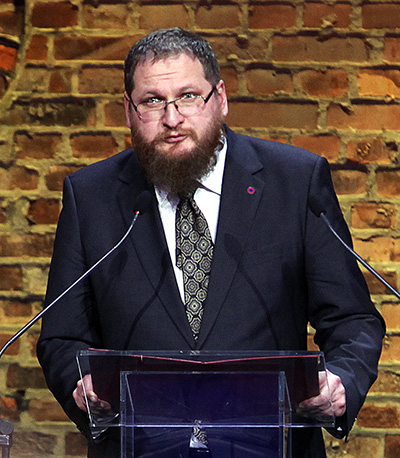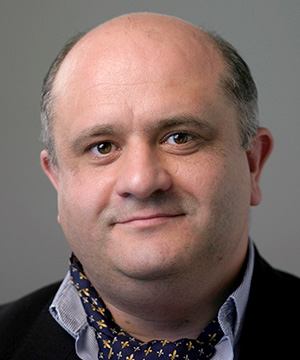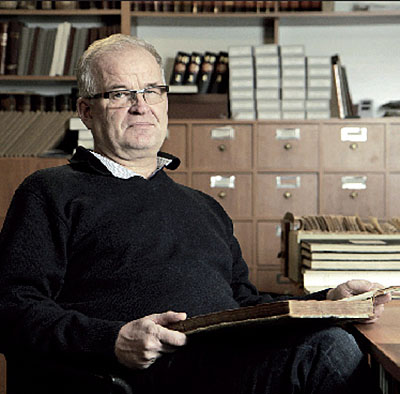
Photo by Memorial and Museum Auschwitz-Birkenau
The key thing in driving the improvements is to work hard and on a daily basis. This means that we should educate not only opinion-formers but also the masses of visitors that tour the Museum every day.
In conversation with Piotr M.A. Cywiński, PhD, Head of the Auschwitz Memorial and State Museum
What can we do to counteract mendacious terminology such as “Polish camps”, which is perpetrated by the foreign media?
In my view, there are two measures that have been successful and must be continued. Firstly, the Polish diaspora should cooperate with the Polish foreign service on a regular basis. In many cases, the grass roots can put a lot of pressure locally on particular newspapers. Secondly, there must be consistent educational programmes that are designed to produce more sustainable effects.
The Auschwitz Memorial and State Museum lays a lot of emphasis on educating journalists. What are the effects of this?
The seventieth anniversary of Auschwitz liberation, which is the most publicised event in the Museum’s entire history, has also brought the opportunity to create a website to assist journalists. We are also happy to collaborate with journalists throughout the world on a daily basis, and we send them regular news items. I am sure that, by taking part in the project, they are now able to avoid a lot of unnecessary mistakes. We have also created an app called “Remember”, which fishes out terms such as “Polish camps” and suggests more suitable alternatives. The app helps us to publicise the whole affair.
These measures attract media attention, but the key thing in driving the improvements is to work hard and on a daily basis. This means that we should educate not only opinion-formers but also the masses of visitors that tour the Museum every day. I do pin my hopes on these visitors, especially as the Museum attracts young people in huge quantities. I do hope that the situation will start to show a significant improvement over time. Some things just cannot change overnight or with one decision.
Have you noticed any improvement over the last ten years since you took over as the Head of the Auschwitz Memorial and State Museum?
In my opinion, the awareness of World War II and concentration camps is growing. The journalists who address the issue on a regular basis usually realise the gravity of the issue, and they know that German camps should never be called “Polish”. Ten years ago or so, they would look at you with disbelief if you pointed out the mistake. A growing number of journalists are now able to admit their mistakes or inaccuracies. Unfortunately, these mistakes will still be perpetuated in the fast-moving world of the contemporary media, whose focus is on instant effect without suitable verification or proofreading. That being said, we are doing everything in our power to prevent these mistakes from happening.






